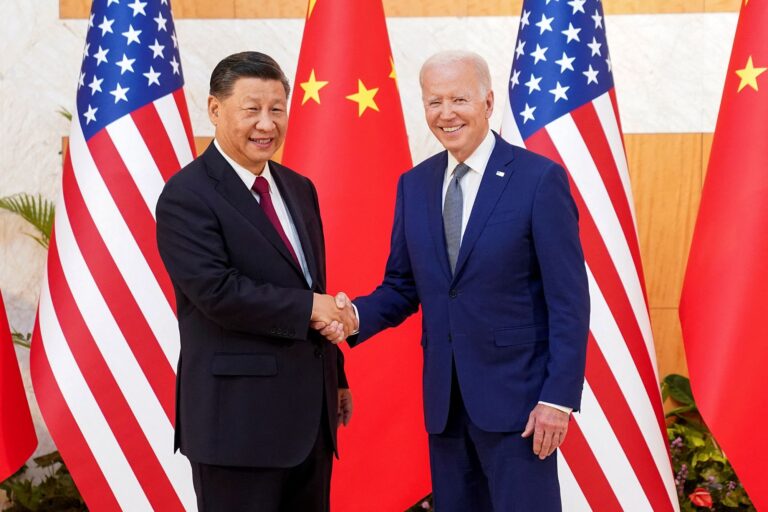
US President Joe Biden on Monday objected to China’s “coercive and increasingly aggressive actions” toward Taiwan and raised human rights concerns about Beijing’s conduct in Xinjiang, Tibet, and Hong Kong during his first in-person meeting with President Xi Jinping on the sidelines of the G20 Summit in Bali.
In its statement on the roughly three-hour meeting, the White House said Biden told Xi that the US would “continue to compete vigorously” with China, but that “competition should not veer into conflict.”
The White House said Biden and Xi also agreed that “a nuclear war should never be fought” and can’t be won, “and underscored their opposition to the use or threat of use of nuclear weapons in Ukraine.” That was a reference to Russian officials’ thinly-veiled threats to use atomic weapons as its nearly nine-month invasion of Ukraine has faltered.
Meanwhile, the G20 summit taking place on Tuesday and Wednesday had a special visit by the leaders to the Taman Hutan Raya mangrove forest in Bali on Tuesday.
India will take over the reins of the G20 summit, which is currently headed by Indonesia. The G20 grouping is putting a special focus on food and energy security as well as coming out of the Covid-19 health damage.
During his two-day visit, Prime Minister Narendra Modi visited the mangrove forest in Bali.
In a special briefing on the G20 summit, Foreign Secretary Vinay Kwatra said: “As you know, mangroves are an important refuge of coastal biodiversity and act as bio shields against extreme climatic events and as important carbon sinks.
"India’s own mangrove cover is significant, with one of the highest biodiversity in the world. We also recently agreed to join the Global Mangrove Alliance, which was launched jointly by Indonesia and UAE”.
Indonesia is putting a lot of emphasis and importance on the visit to the mangrove site. It has made plans for the G20 leaders to plant mangrove trees at Ngurah Rai Mangrove Forest Park in Denpasar.
Talking about the programme, Secretary of the State Secretariat of Indonesia, Setya Utama, said: “The second day will start with a side event in the form of mangrove tree planting at the mangrove forest park in the morning…”
Mangroves are coastal forests which grow in tidal and muddy areas. These forests have multiple varieties of trees and vegetation which are natural barriers against sea level rise as well as in mitigating the effects of cyclones and storms. Mangroves are said to absorb more carbon emissions than regular forests.
The G20 summit hopes to battle climate change by making a push for protecting and growing more mangroves. Mangrove plantation and protection is also expected to give a boost to coastal communities which will begin to preserve mangroves instead of reclaiming land from these.